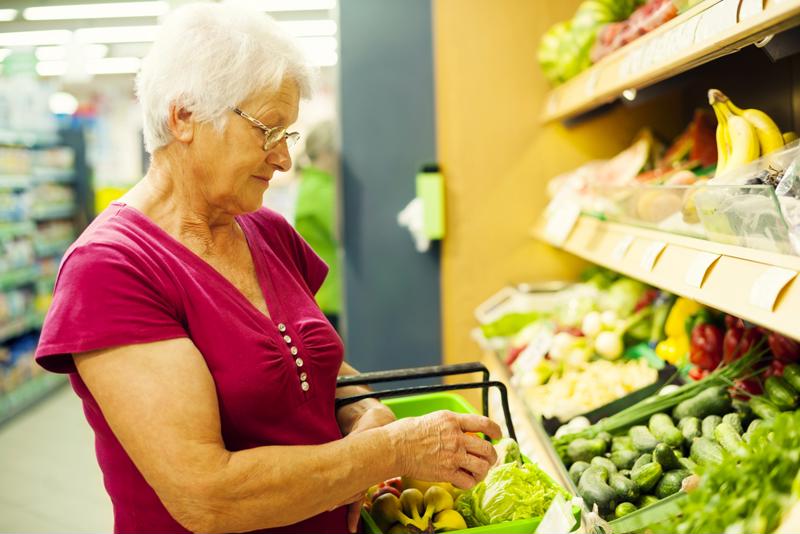As a hub of customer foot traffic, perishable inventory, significant sums of money, expensive electronic equipment and lots of square footage, grocery stores may seem like a major insurance risk. Making matters worse, certain ill-guided customers have taken it upon themselves to sow fear among the population with malicious attempts to poison the food available in grocery stores.
With so much likely to impact the overall safety and financial security of a grocery store, it’s important to have the right protections in place in the event that a lawsuit or disaster – whether natural or man-made – threatens the business.
Changing risks
A recent story about a supermarket in Michigan highlights the shifting risks facing grocery stores on a regular basis.
According to Fox 2 Detroit News, a 29-year-old man allegedly added an extra, deadly flavor to the salad bar at the Whole Foods in Ann Arbor, Michigan: poison. The source stated local police working with the FBI managed to obtain a confession from Kyle Bessemer, the alleged offender, wherein he admitted to mixing together rat poison, water and hand sanitizer and then spraying this concoction onto food in at least three grocery stores in Ann Arbor.
The alleged perpetrator appeared before a judge recently and was charged with two 15-year felonies for knowingly poisoning people and two 20-year felonies for poisoning property causing damage. The alleged offender said he only did it because people were already trying to poison him. The source noted that investigators stated Bessemer has a history of mental illness.
 Umbrella retail insurance can help protect grocery stores as they face a growing number of ever-changing risks.
Umbrella retail insurance can help protect grocery stores as they face a growing number of ever-changing risks.“On April 22 [Bessemer] purchased rat poison specifically for a salad which is an anti-coagulant that causes rats to internally bleed,” said Washtenaw County Prosecutor Brian Mackie. “It’s a very scary crime that happened. Thankfully as far as we know, nobody has been hurt.”
Although no one was hurt, the immediate ramifications and eventual fallout surrounding poisoned customers and damage to inventory could have been disastrous for any potential victims as well as the grocery stores involved.
Covering all your bases
Commercial enterprises that sell food are faced with some of the biggest risks in the retail sector. Due to the nature of what these stores sell and the interaction with customers, it’s vitally important that owners and managers are taking every step possible to cover all their bases. Whether it’s a local mom-and-pop bakery, a burgeoning grocery store chain or an international supermarket company, having the right insurance coverage can be the difference between keeping the lights on and shutting up shop for good.
While grocery stores have always had to deal with a wide range of risks including everything from robberies to employee dishonesty, having to prepare for random, unexpected and completely unwarranted situations like the one described above can really tax the resources and planning capabilities for a grocery store of any size.
“The $1 million limit associated with many regular business liability insurance policies might not suffice.”
Fortunately the alleged perpetrator was caught and will stand trial for the accusations in this case. However, if investigators and store personnel had not been so vigilant or lucky in discerning the identity of the alleged offender, the grocery store could have easily been blamed and held liable if customers ate the contaminated food.
With the proper insurance policy, grocery store owners and other retailers can avoid being held personally responsible for monetary damages or settlement awards, or legally liable in the event of a loss or claim against the establishment. While a commercial business insurance policy might suffice for covering some of the losses associated with tainted produce, the $1 million limit associated with many of these might not be sufficient. As noted by Food Safety Magazine, other types of first-party insurance policies are typically necessary to fill gaps in traditional commercial general liability and commercial property coverage.
Brokers who partner with McGowan Excess & Casualty gain access to our umbrella programs for grocery and retails stores, bakeries and hundreds of other eligible classes operating within the food industry. Don’t let an unforeseen risk derail a supermarket’s success, because at McGowan, we expect the unexpected. As a Program Manager, we have unique access to “The Power of the Pen” which allows us to perform all of the underwriting functions of our carriers. This lets us create specially tailored policies in house, providing our own underwriting, rating and policy issuance.



